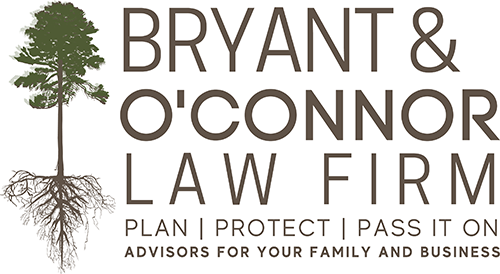As we journey through an increasingly digital age, the do-it-yourself (DIY) trend is thriving in many aspects of life. However, when it comes to drafting your own deeds, the digital route might not be the best one. I’ve seen fifty or sixty DIY deeds become a problem way more expensive than the fee it would have taken to have the deed prepared properly in the first place. It’s easy to find a “free form” online or to scan your friend’s deed from a different transaction, and then copy the language in it to make your own deed. Deeds, as legal documents facilitating property transfer, might appear to be straightforward paperwork, but they demand a deep understanding of the law. People who don’t have significant experience with real estate work may think that they can use a form just as well as an attorney can, but the problem is that the DIY’er will not recognize when they’re messing up until it’s too late. Here are a few reasons why DIY deeds can be fraught with risks and pitfalls:
- Legal Language Requires Expertise
Legal language is layered, complex, and intricate. It necessitates precision, with every word carrying significant weight. Small errors or misinterpretations can lead to substantial disputes or even invalidation of the deed. Therefore, mastering the language of the law is a prerequisite for drafting a deed, an expertise typically gained over years of legal practice. I would not even trust a law school graduate with preparing a deed for me, a lawyer, without checking behind them. I’ve employed a number of people over the years who prepare the first draft of deeds for me to review, but most people never become competent at it without preparing 100s of deeds that have been critiqued and redlined by someone like me. Thus, why would you trust yourself to prepare your own deed without a real estate attorney doing it?
- Navigating the Maze of Deed Types
There’s a plethora of deeds – warranty deeds, quitclaim deeds, life estate or joint tenancy deeds, each with a unique purpose and varying levels of buyer protection. Selecting an inappropriate type can jeopardize the entire property transfer. The internet might provide a broad overview, but recognizing the nuanced differences requires seasoned legal insight. Further, deed requirements vary between states, and generic forms often don’t include Georgia’s requirements. I’ve even seen Georgia deeds prepared by out-of-state attorneys that were completely wrong and had to be redone. If the original grantor is dead or incapacitated, you’ve got a real problem. A Georgia deed requires a Georgia lawyer.
- Accuracy of Legal Descriptions
The legal descriptions in a deed must be meticulously accurate and define the boundaries of the property. You can’t just list the property address or tax parcel number. Even minute inaccuracies can cause disputes or nullify the deed. A trained professional who comprehends the intricacies of these descriptions is crucial for the correct execution of the deed.
- Adhering to State-Specific Laws
Drafting a deed is more than just filling in the blanks on a form. It involves several critical steps which vary based on state laws. In Georgia, a deed must be witnessed by both an unofficial witness and a notary public for it to be valid. Online forms or templates from other states often fail to incorporate these specific requirements, making the deed invalid. Even many lawyers who don’t regularly handle real estate transactions in Georgia fail to recognize nuances in the signature block that actually make a big difference.
- Overlooking Tax and Estate Implications
Property transfers through deeds have tax and estate planning implications. A gifted property will have different capital gains tax implication from one that is left to beneficiaries through a will or revocable trust. Further, a deed, once delivered and recorded is irrevocable. It can’t be unilaterally reversed when you later learn that you made a mistake. A legal professional who practices both real estate and estate planning law, with their deep understanding of these complexities, can guide you through these potential pitfalls.
While DIY might work for crafting or home projects, legal matters such as drafting a deed warrant professional expertise. The difference lies in the nuanced understanding of the law that a seasoned lawyer brings to the table – the ability to choose the right form from hundreds, identify potential issues, and ensure all steps are correctly executed.
At Bryant & O’Connor Law Firm, our attorneys excel in simplifying complex legalities. Specializing in real estate law, estate planning, and probate and trust administration, we aim to ensure a smooth and secure property transfer process, guarding your best interests.
For any queries or guidance on deed drafting or other real estate matters, reach out to us. We are committed to assisting you at every step, helping you steer clear of unnecessary risks, and providing you peace of mind.
Remember, when dealing with legal matters, it’s better to be safe than sorry. Follow us on Facebook and Instagram and subscribe to our email newsletters for more legal, financial, and motivational insights.
Disclaimer: This blog post is for informational purposes only and should not be considered legal advice. We recommend consulting with a qualified attorney for advice on any specific legal issues.

